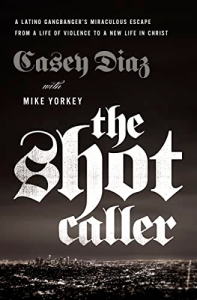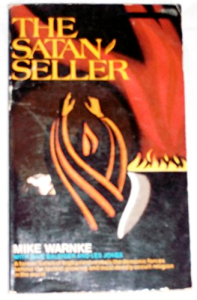For a few days Jack Miller’s devotional Saving Grace considered the joy of the Lord from Nehemiah 8.
9 And Nehemiah, who was the governor, and Ezra the priest and scribe, and the Levites who taught the people said to all the people, “This day is holy to the Lord your God; do not mourn or weep.” For all the people wept as they heard the words of the Law. 10 Then he said to them, “Go your way. Eat the fat and drink sweet wine and send portions to anyone who has nothing ready, for this day is holy to our Lord. And do not be grieved, for the joy of the Lord is your strength.” 11 So the Levites calmed all the people, saying, “Be quiet, for this day is holy; do not be grieved.” 12 And all the people went their way to eat and drink and to send portions and to make great rejoicing, because they had understood the words that were declared to them.
This takes place in the context of corporate worship and covenant renewal. This included hearing the Word of God which prompted repentance. The people’s repentance was to produce joy which strengthens us. That joy was turned into celebrative worship.
“The joy of the Lord is something God give us, and the heart of it is God being present. When He is present, He does three things: convicts of sin, forgives sin and offers personal joy and intimacy. The center of joy is being able to love God because He loves you so very, very much.“
God’s presence produces joy in His people. Awareness of being in God’s presence produces conviction of sin, best illustrated in Isaiah’s experience. God does not leave us in our guilt and shame, but forgives all who repent. This produces increased joy and intimacy with God. Loving God, who loved us first, is important to experiencing the joy of the Lord.
In hardship, we don’t feel God is present. We feel forgotten, abandoned. We lack joy as a result. We have to believe those promises to never leave us nor forsake us. This is walking by faith.
“The joy of the Lord comes from the outside. The joy of the Lord is your strength. God is for you and He is present. He is Christ crucified for you, He is living in you, and He supervises all things for your benefit. If you can’t be joyous over that, I don’t know what you can be joyous over!“
Presence! Gracious presence! Pardoning and empowering presence! Sovereign presence!
This joy is a gift. We experience it inside, but it originates outside of us. It originates in God. When we know, through the gospel, that God is for us. We know this because Christ has been crucified for us and lives in us. This sounds like an echo of Galatians 2:20. When we forget these great things, we lose our joy. Spiritual forgetfulness or amnesia leads to the loss of joy.
Part of what stole my joy was feeling judged and condemned by a number of people I’d been close to. Some of them were gone from my life. Some seemingly never wanted to see me again. Once hasn’t talked to me in nearly 5 years. Others withdrew. When we focus on that instead of God’s mercy in Christ, our joy is like a leaf on the wind.
“... the heart of holiness … is always found in joy. To please God, to be holy, to have God near you, you have to have joy. … The joy of God is God present with people. And when God is present, you can’t be the same old you. Something new must happen.“
The joy of the Lord moves us toward holiness. Because He is present, and has loved us in Christ, faith leads us to want to please Him. We want to change. He wants to change us. He makes us new in Christ, and begins to transform us. We continue with this process through the joy of the Lord. Apart from this joy, our weak knees will give way, we will lose heart and give up.
When we struggle with sin we often lose our joy. We see our failure, our struggle. We don’t see the growth. We grow discouraged and lack joy.
“... start with Christ before getting into confession and repentance. You can only have healthy sorrow when you have healthy joy. That is the priority of defending, maintaining and building up the joy God has given you.“
Apart from apprehending the mercy of God in Christ, there is no true repentance. No genuine or godly sorrow and confession of sin. On-going repentance will defend and build our joy in Christ.
“Now, as a Father, He will certainly need to forgive you, as you confess your sins, but He is no longer your judge. So you have a platform for joy.“
In Christ, we are God’s adopted sons. He is no longer our judge. He keeps His promise to forgive us when we confess our sins (1 John 1:9). Forgiveness of sin provides the foundation for our joy.
“… Jesus was drawing you- bringing you into His joy, into His conviction of sin, to a knowledge of His forgiveness- and inviting you into His intimacy.“
Jesus calls us to salvation, and to share His joy. We see once again, Jack returning to the cycle of conviction, repentance, forgiveness and joy. This joy is found entering into His presence and enjoying communion or fellowship with Him. A lack of joy may point to a lack of intimacy with God. Lying behind that could be a lack of conviction or repentance.
One of the roots of our problem with joy is control, or the lack thereof. We are pilgrims in this world but we so much want to be in control. Yet we are not and this grieves us greatly. The need for control in our relationships, our politics and labors is what robs us of so much joy. If you lack joy, consider if you are seeking to be in control of things beyond your control: the God wish.




